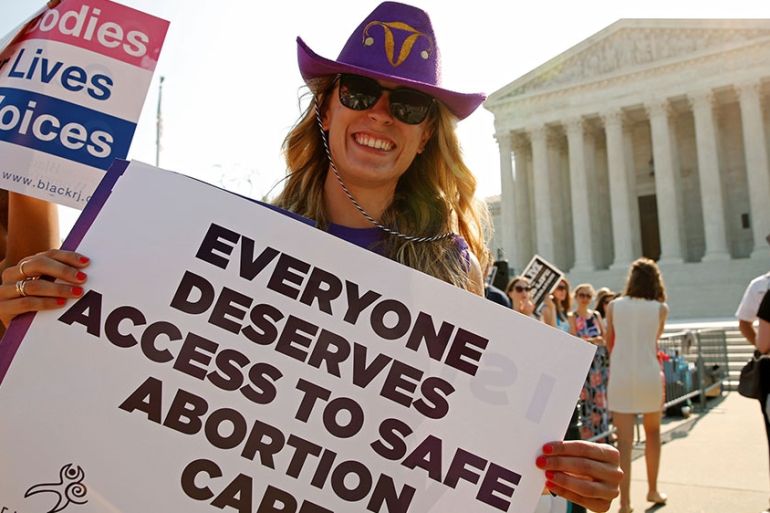Judge stops Texas from curbing abortions during COVID-19 crisis
Rights groups called the Texas attempt a ‘blatant effort to exploit a health crisis to advance an anti-abortion agenda’.

A United States judge on Monday blocked Texas officials from banning most abortions in the state as part of their order to postpone surgeries and procedures deemed not medically necessary during the coronavirus crisis.
Texas Attorney General Ken Paxton, a Republican, last week announced that abortion providers were covered by a state order that required postponement of non-urgent medical procedures to preserve hospital beds and equipment during the pandemic.
Keep reading
list of 3 itemsUS federal judge temporarily blocks Georgia abortion law
US federal judge blocks Missouri’s eight-week abortion ban
US District Judge Lee Yeakel in Austin ruled that Paxton’s action “prevents Texas women from exercising what the Supreme Court has declared is their fundamental constitutional right to terminate a pregnancy before a fetus is viable.”
Abortion providers sued in federal court last Wednesday to try to block Paxton’s action, which they said forced the cancellation of hundreds of appointments for abortions across the state and had undermined their ability to provide the surgical procedure and abortion pills.
The abortion clinics said in their lawsuit that Paxton’s “blatant effort to exploit a public health crisis to advance an extreme, anti-abortion agenda” violated the right to abortion under the US Constitution as recognised by the US Supreme Court’s 1973 Roe v Wade decision.
Paxton said on March 23 the state order meant that any abortion that “is not medically necessary to preserve the life or health of the mother” must cease and said anyone who violates the order “will be met with the full force of the law.” Failure to comply could result in penalties of up to $1,000 or 180 days in jail.
His action marked the latest effort by the state to restriction abortions.
The Supreme Court in 2016 struck down the state’s requirement that doctors have a sometimes difficult-to-obtain formal affiliation called admitting privileges at a nearby hospital and that clinics possess costly, hospital-grade facilities. The justices found those mandates to be an impermissible “undue burden” on a woman’s ability to obtain an abortion.